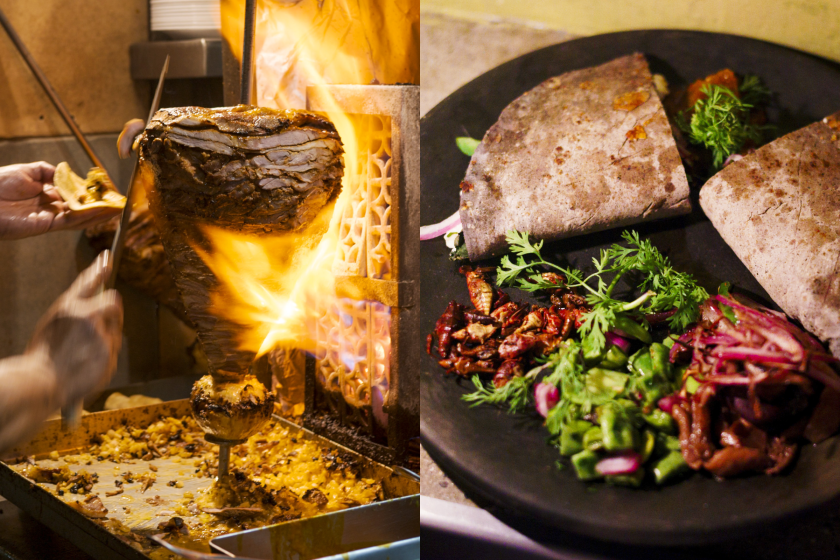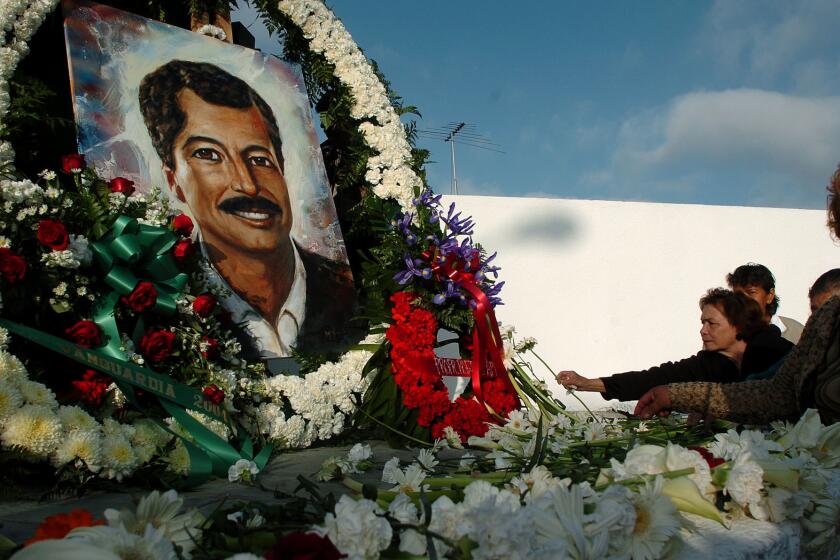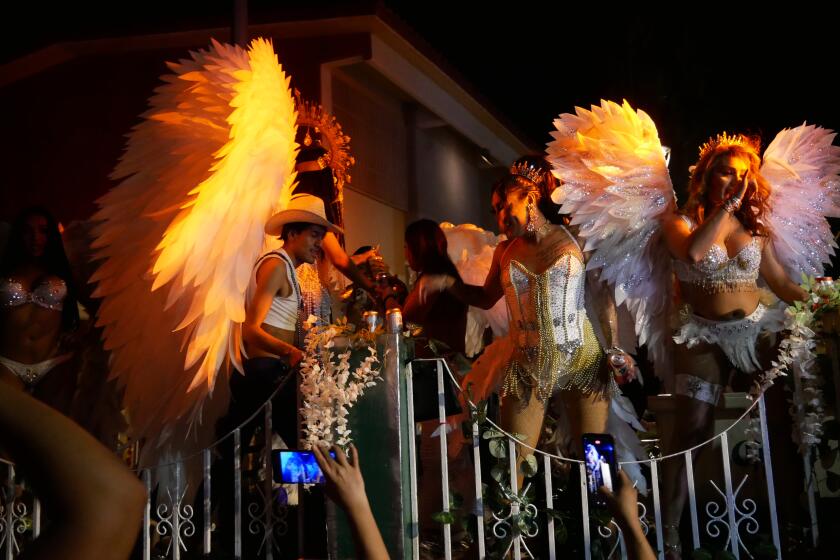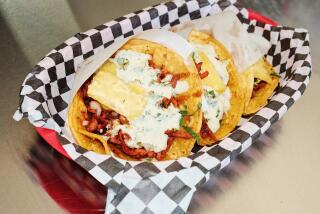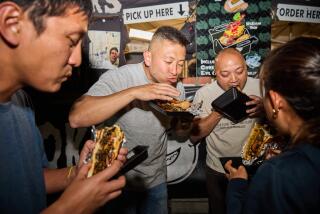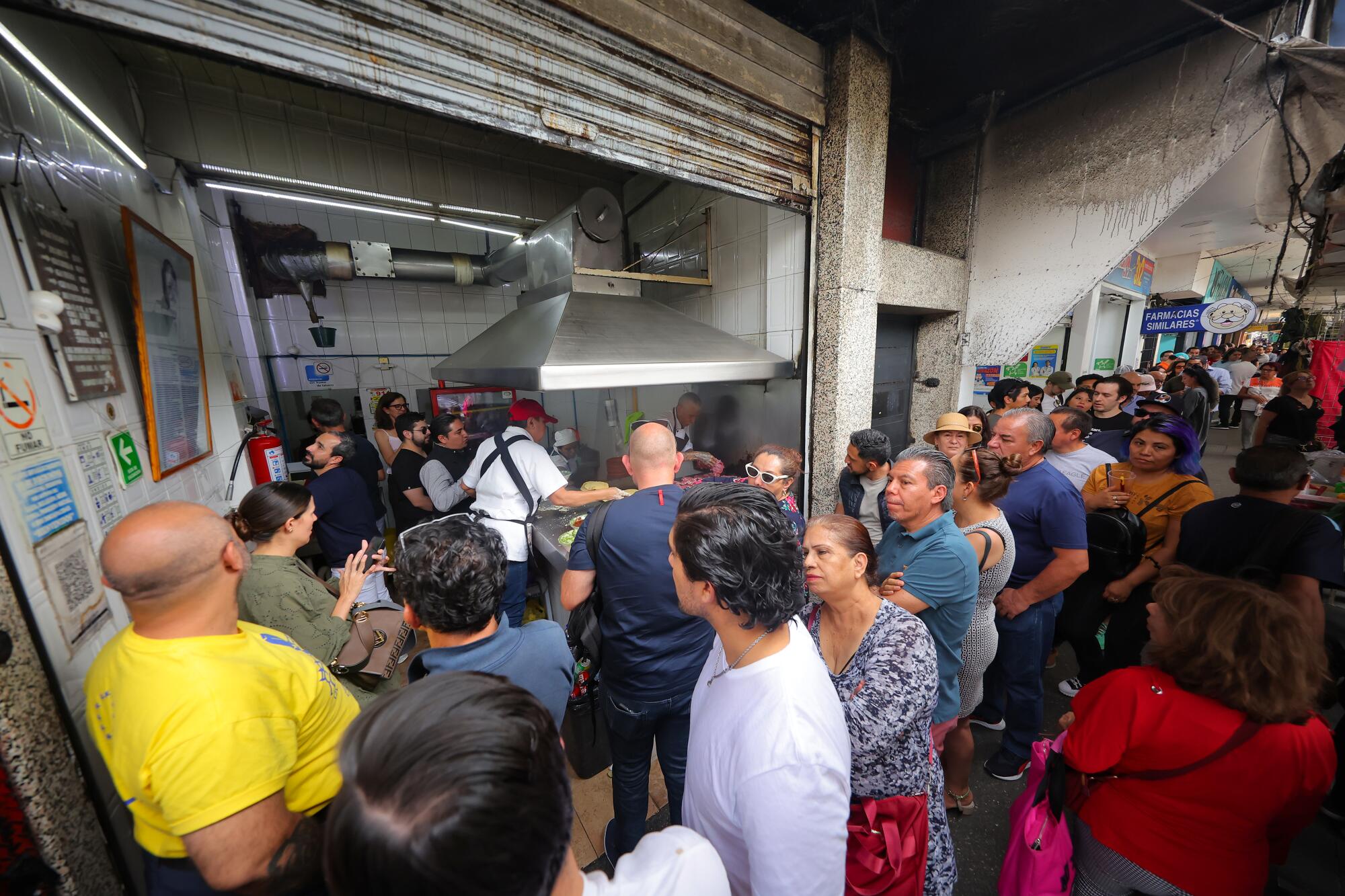
MEXICO CITY — The taco guy didn’t quite get the fuss.
“I didn’t realize the magnitude of the whole thing,” recalled Arturo Rivera Martínez. “I had no idea of what a Michelin star was.”
He does now.
El Califa de León, the modest taquería where Rivera has labored over a sizzling grill for more than two decades, was awarded a star last week in the first-ever Michelin Guide Mexico, instantly turning him and the rest of the staff into epicurean heroes.
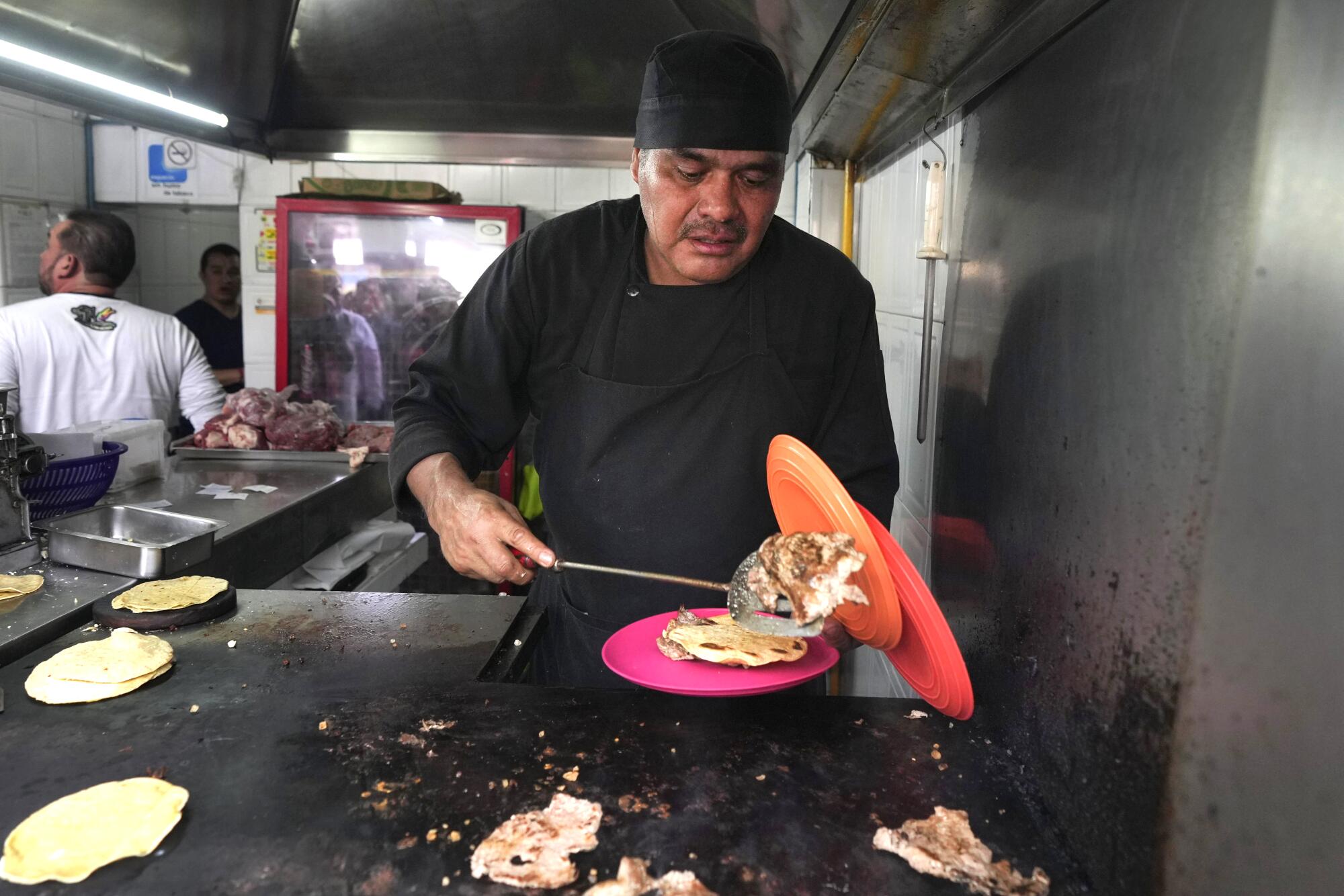
The humble taco is a great unifier across this vast and fractured capital. With more than 11,000 taco joints in Mexico City, there may be no sight more iconic here than the all-night puesto — wealthy businessmen, civil servants and taxi drivers alike hunched side-by-side stuffing their mouths with a food that has been around, in one form or another, since before the Spanish conquest.
Food editor Daniel Hernandez shares everything to put on your bucket list when traveling to the capital of Mexico.
For its new Mexico guide, Michelin bestowed one or two stars on 18 restaurants across Mexico, most of them high-end dining experiences. El Califa de León, a cramped, no-frills establishment in the working-class district of San Rafael, is the first taquería in the world to get one.
As the news spread, the line outside began to grow. This week it stretched more than two blocks alongside street stands selling everything from toys to underwear and cellphone cases. Newcomers settled in for waits of at least two hours.
“We’ve never seen anything like it,” said co-owner Mario Hernández Alonso, 66, as he answered nonstop questions from journalists swarming his shop. “My parents would never have imagined it.”
His father opened El Califa de León in 1956, naming it for a well-known bullfighter who happened to be a friend.
The spot was long a haunt of politicians given its location down the street from the headquarters of the Institutional Revolutionary Party, which governed Mexico for much of the 20th century. An homage to Luis Donaldo Colosio — a regular patron and presidential candidate when he was assassinated in Tijuana three decades ago — is one of the few wall adornments.
The son of slain presidential candidate Luis Donaldo Colosio asked that his killer be pardoned, but President Andrés Manuel López Obrador refused.
There is no room to sit at El Califa de León. Customers lean over counters and scarf down the grub from plastic plates. They can choose from four tacos — bistek, costilla, chuleta and the trademark gaonera, a filet named after the late bullfighter’s signature move with his red cape.
Michelin lauded the gaonera taco as “exceptional.”
“Thinly sliced beef filet is expertly cooked to order, seasoned with only salt and a squeeze of lime,” wrote an anonymous inspector from Michelin. “At the same time, a second cook prepares the excellent corn tortillas alongside. The resulting combination is elemental and pure.”
1
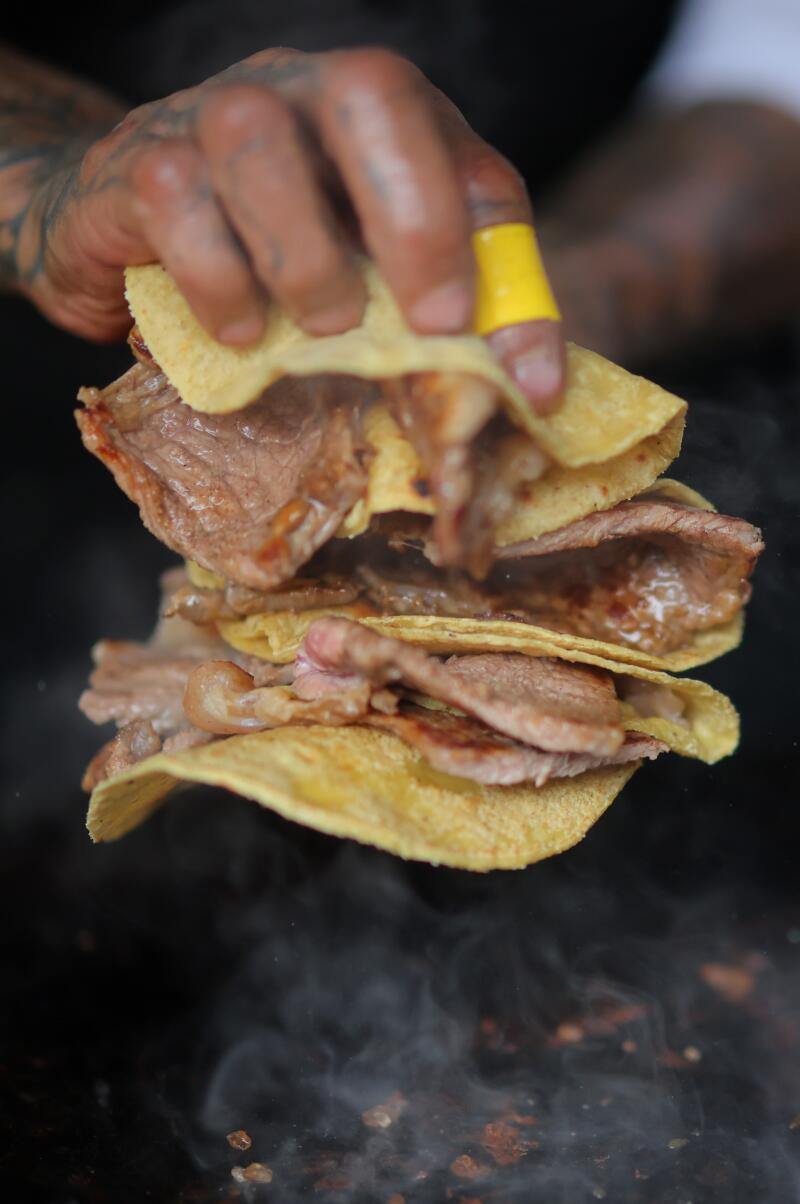
2
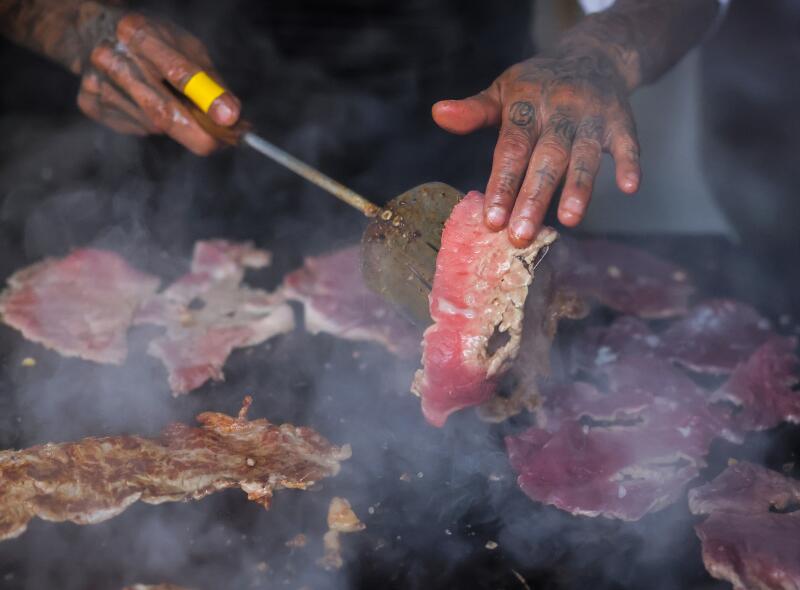
3
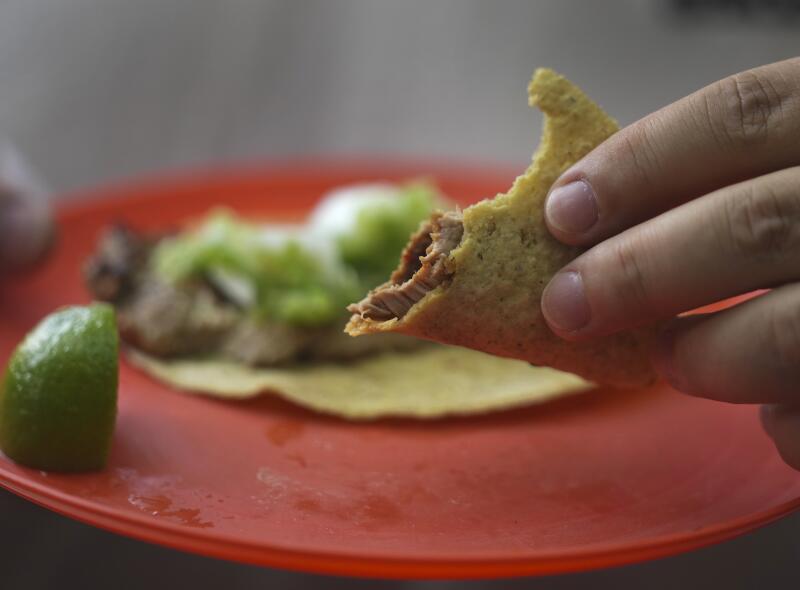
1. Jacinto Rodriguez works the grill at El Califa de Leon. (Hector Vivas /Getty Images) 2. The taquería’s trademark gaonera meat is prepared on the grill. The Michelin guide called the gaonera taco “exceptional.” (Hector Vivas / Getty Images) 3. “With meat and tortillas of this caliber,” a Michelin inspector wrote, two homemade salsas, green and red, were “hardly even necessary.” (Fernando Llano / Associated Press)
“With meat and tortillas of this caliber,” the inspector wrote, two homemade salsas, green and red, were “hardly even necessary.”
A few soft drinks are the only libation. No beer, wine or tequila, no time or space for contemplation. Nor will one find cheese, sour cream, lettuce, tomato or any of the fillings common in the United States that often overwhelm the essential fusion of meat, tortilla and sauce.
“As my father used to say: ‘The secret is: There is no secret, just high-quality meat and fresh ingredients,’” Hernández said. “It’s a question of simplicity.”
Individual tacos cost from about $3.50 to $5, pricey by Mexican standards, though portions are ample.
On social media, some commentators of a nationalist bent chafed at the very notion of French foodies passing judgment on the venerable Mexican taco.
More migrants illegally enter the United States along this California stretch of the border than anywhere else. They’re not coming from the places you’d expect
Declared one commentator on the social media platform X: “In my opinion — and call me a hater if you want — neither El Califa de León, or Mexican cuisine in general, needs the validation of the gastronomic marketing company of the tire-maker Michelin.”
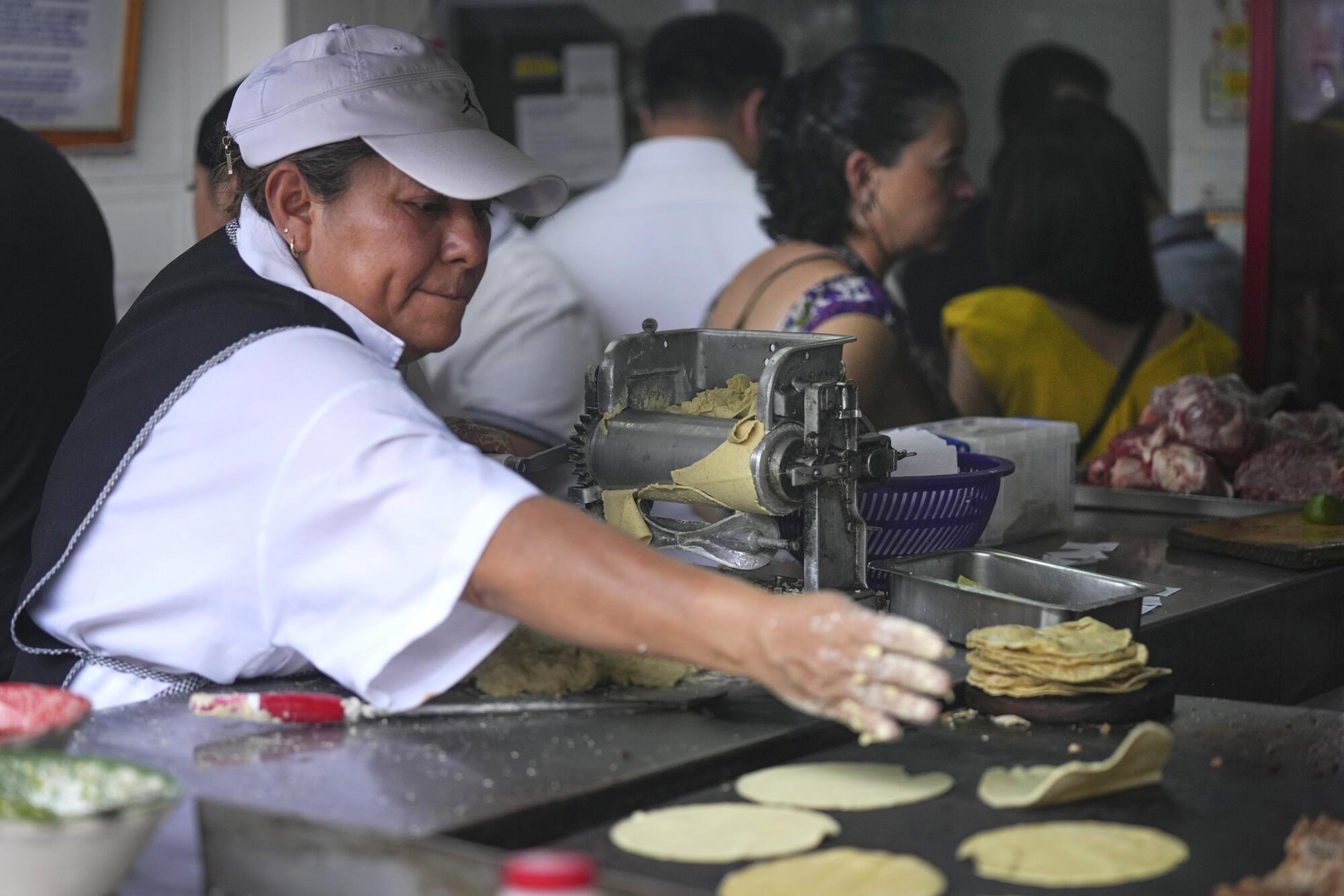
Working the gas grill, which faces the sidewalk, Rivera continually lifted cooked slices of meat and placed them into warm tortillas, made on site from corn flour.
“To have hand-made tortillas gives another dimension to the tacos,” said Isabel Carolina González, 50, who has been crafting the masa de maiz discs here for more than 20 years — but had never witnessed the kind of commotion seen this week. “There hasn’t been a moment of peace since the star!”
Among those in line before the 11 a.m. opening time in recent days were tourists from across the world.
“Somebody heard about the Michelin star, so we decided to come by,” said Derek Perez, 36, who was visiting Mexico City from Santa Monica with friends on a multiday bachelor party celebration. “Try something new.”
But most clients were Mexico City natives, hard-core taco enthusiasts, passionate — and picky — about their cherished dish.
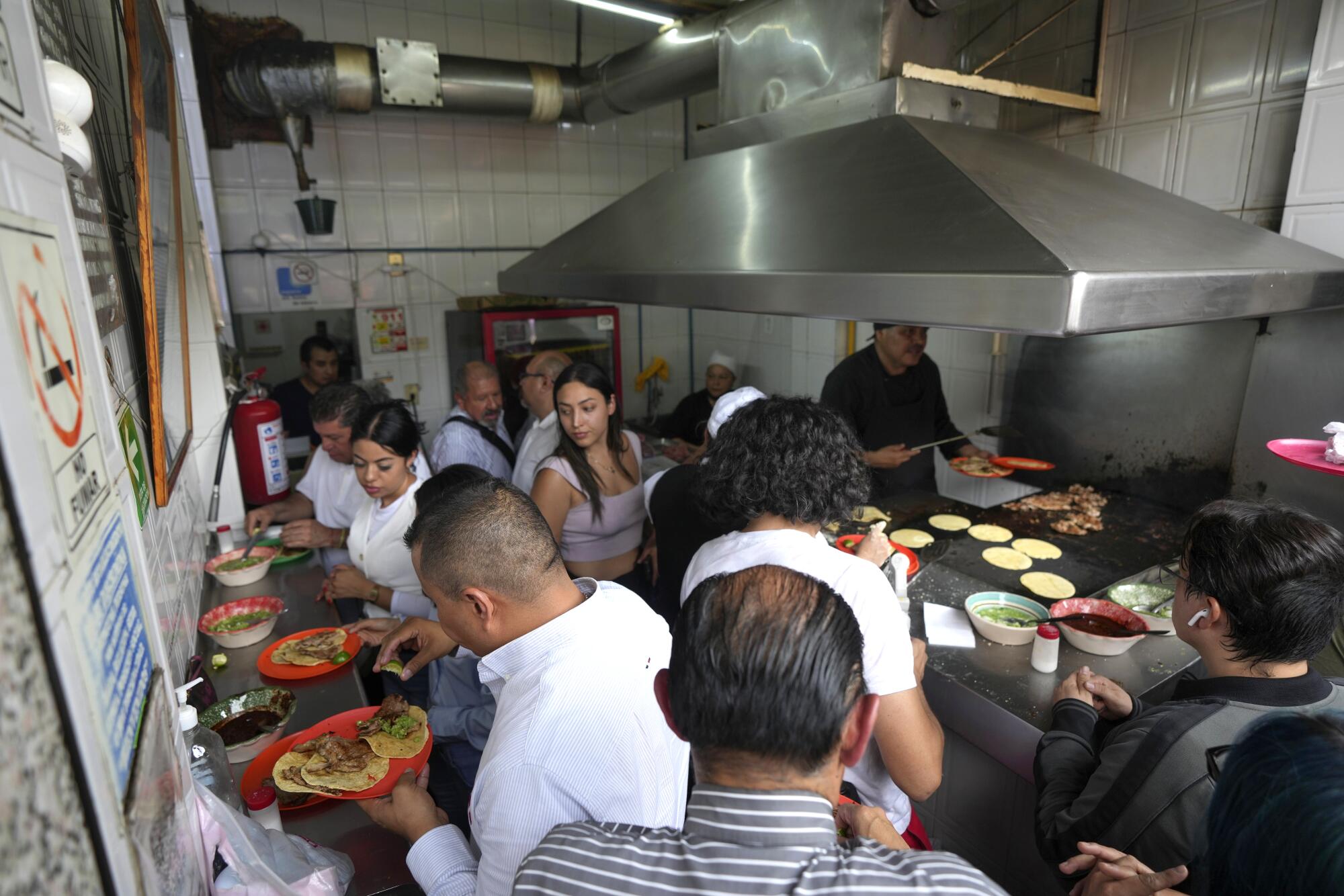
Few Mexico City residents — be they poor, rich or middle class — live far from a neighborhood taquería. The cuts of meat and array of salsas and other ingredients — along with methods of cooking — vary widely.
“I’d never been to this taquería before, but I saw a video on TikTok saying it had received a star from Michelin and that the tacos were the best in Mexico City,” said Santiago Salazar Blanco, 18, an aviation student who waited for two hours with a friend to try it for himself.
Like others interviewed, he expressed pride that Michelin had honored a Mexican taquería. But the actual product did not blow him away.
“Yes, the tacos here are good, but nothing spectacular,” he concluded. “We are taco fanatics. I’d give this place maybe an 8 out of 10. I’m happy they won the award. But the truth is there are places in the city where you can find better tacos — and a lot cheaper.”
The crew at El Califa de León accepts the reality that consensus on something as individualistic as the taco in Mexico City is unlikely. But they held out hope that this accolade from Paris could signal continued good fortune in a highly competitive market.
The muxe — Indigenous Zapotec people in Mexico — view themselves as neither man nor woman. They embrace a distinct ‘third gender,’ part of a burgeoning LGBTQ+ movement worldwide.
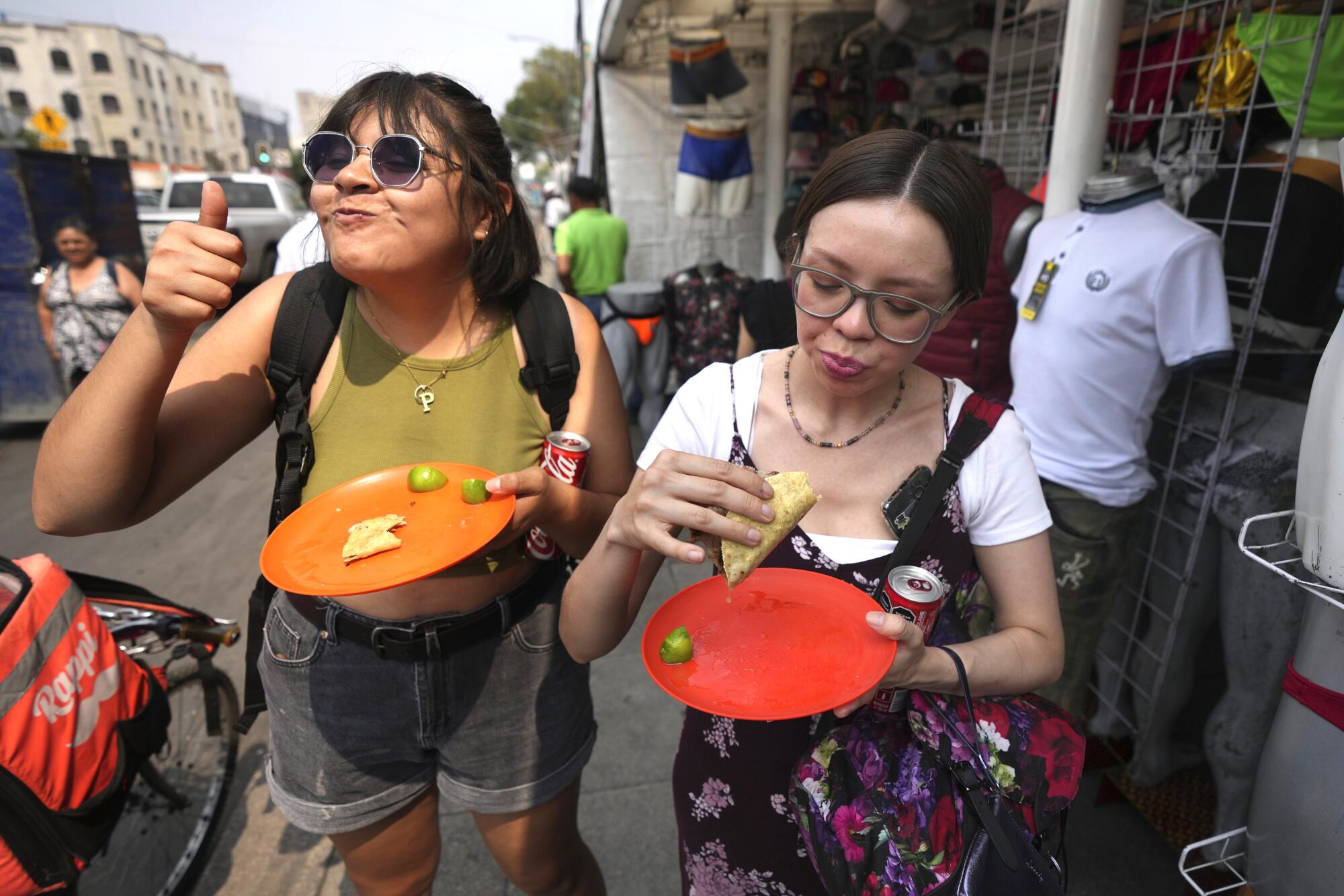
The owner floated the possibility of opening a new branch. “We shall see,” he said.
Rivera, the cook, received a white monogrammed Michelin chef’s jacket, which hangs in his closet because it’s too warm for his broiling workplace, and he doesn’t want to get it dirty working the greasy grill. He wears all black.
He said his family is thrilled when he is interviewed by the press. But he’s not sure what this distinction will mean for his future. Alas, fame can be fleeting.
The challenge in Mexico City, built amid lakes by the Aztecs, had long been getting rid of water, not storing it. Now its taps are running dry.
“I could definitely use a new car — maybe a BMW,” joked Rivera, who is 56 and drives a battered Volkswagen Beetle.
“This is an award for Mexico,” he concluded as he started his regular 6 p.m.-to-2 a.m shift the other day. “There are many fine restaurants in Mexico. But for a taquería to win this star — that is something special.”
He threaded his way through the crowd and took up his familiar position: Behind the grill, preparing cuts of meat for an exacting clientele. It’s a daily challenge. There’s no faking it. This is a tough town. And people know their tacos.
McDonnell is a staff writer and Sánchez Vidal is a special correspondent.
More to Read
Sign up for Essential California
The most important California stories and recommendations in your inbox every morning.
You may occasionally receive promotional content from the Los Angeles Times.
